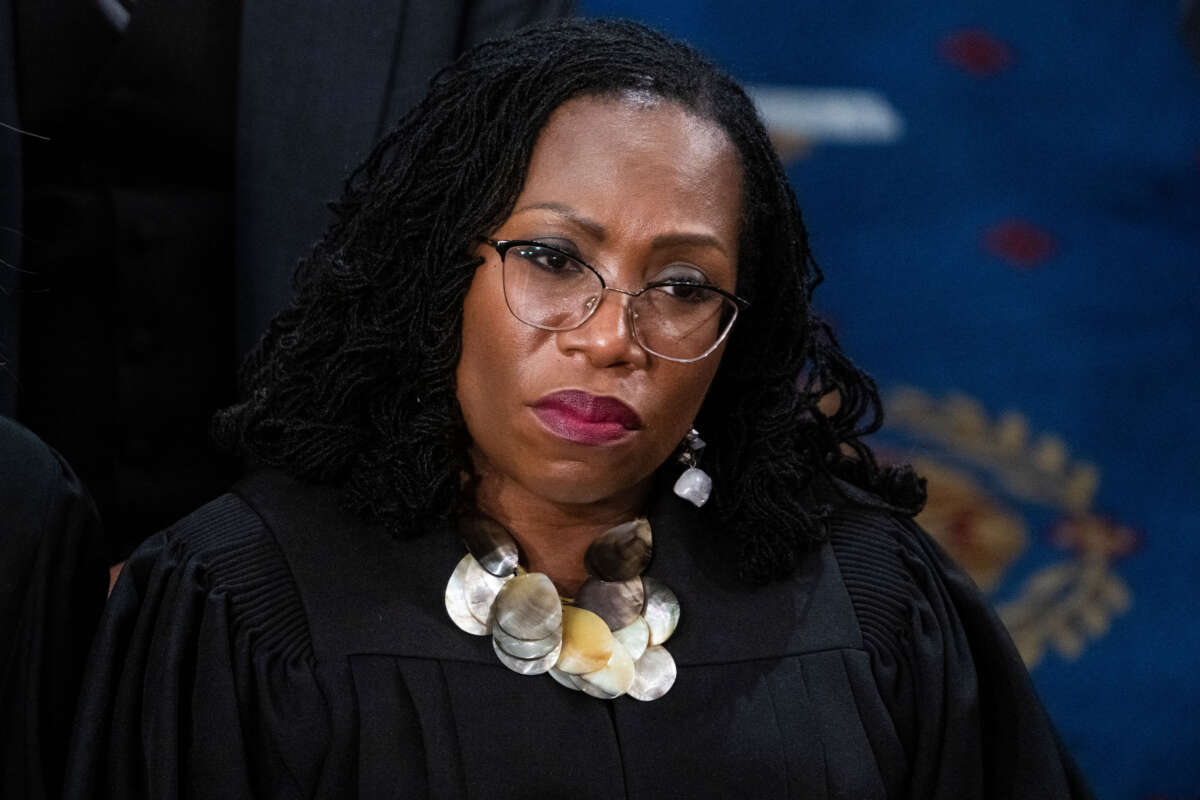Supreme Court Justice Ketanji Brown Jackson has penned a scathing rebuke of the court’s decision not to hear a case involving a Florida man who was sentenced to 162 years in prison.
A writ of certiorari — the court’s decision to hear a case — requires at least four justices to be in agreement. Jackson was joined in her dissent by Justice Sonia Sotomayor, another member of the court’s liberal bloc, showing that at least two justices were willing to hear the case.
It’s unclear whether another member of the court (most likely Justice Elena Kagan, another liberal on the bench) would have granted a writ of certiorari. Such orders are generally unsigned, leaving it unknown who voted against hearing the case, save for the two justices who signed on to the dissent of the order.
Dissenting opinions of writ orders are unusual. Though the Supreme Court announced that it was turning down dozens of cases on Tuesday, this was the only one in which a dissenting opinion was written.
The case centered around a man named Quartavious Davis, who was convicted of committing armed robbery with five accomplices in 2010, when he was 19. Davis argued that his case required reexamination because his lawyer had failed to seek out a plea deal, resulting in multiple charges being stacked on top of each other.
Davis, who is now 23, received a sentence of 162 years in prison, essentially a sentence of death by incarceration — but his accomplices were sentenced to serve a fourth of that time due to plea deals they were able to make through their counsels.
Lower courts were split on whether Davis’s complaint should be considered. The 11th Circuit Court of Appeals eventually ruled against him, arguing that he had failed to provide evidence that he was harmed by his lawyer’s inaction — because there hadn’t been a plea deal, it was impossible to compare his actual outcome with a hypothetical one, they claimed.
That reasoning didn’t sit right with Jackson, who wrote that the Supreme Court missed a “clear opportunity” to resolve the split rulings in the lower courts over “whether having an actual plea offer is an indispensable prerequisite to making the necessary showing of prejudice” by his lawyer.
“The sole question before us is whether a defendant must allege (and then ultimately show) that an actual plea offer was made,” Jackson wrote in her dissent, adding that, “under the circumstances presented here, it was exceedingly likely that Davis would have prevailed with respect to the prejudice prong if the Eleventh Circuit had not applied that threshold requirement.”
MSNBC legal writer Jordan Rubin took note of Jackson’s action, writing that it was “unfortunate” that at least four justices refused to consider hearing Davis’s arguments
“But it’s heartening that Jackson, like Sotomayor, is willing to call her colleagues’ — and our — attention to” important criminal cases, Rubin added.
Join us in defending the truth before it’s too late
The future of independent journalism is uncertain, and the consequences of losing it are too grave to ignore. To ensure Truthout remains safe, strong, and free, we need to raise $50,000 in the next 10 days. Every dollar raised goes directly toward the costs of producing news you can trust.
Please give what you can — because by supporting us with a tax-deductible donation, you’re not just preserving a source of news, you’re helping to safeguard what’s left of our democracy.
